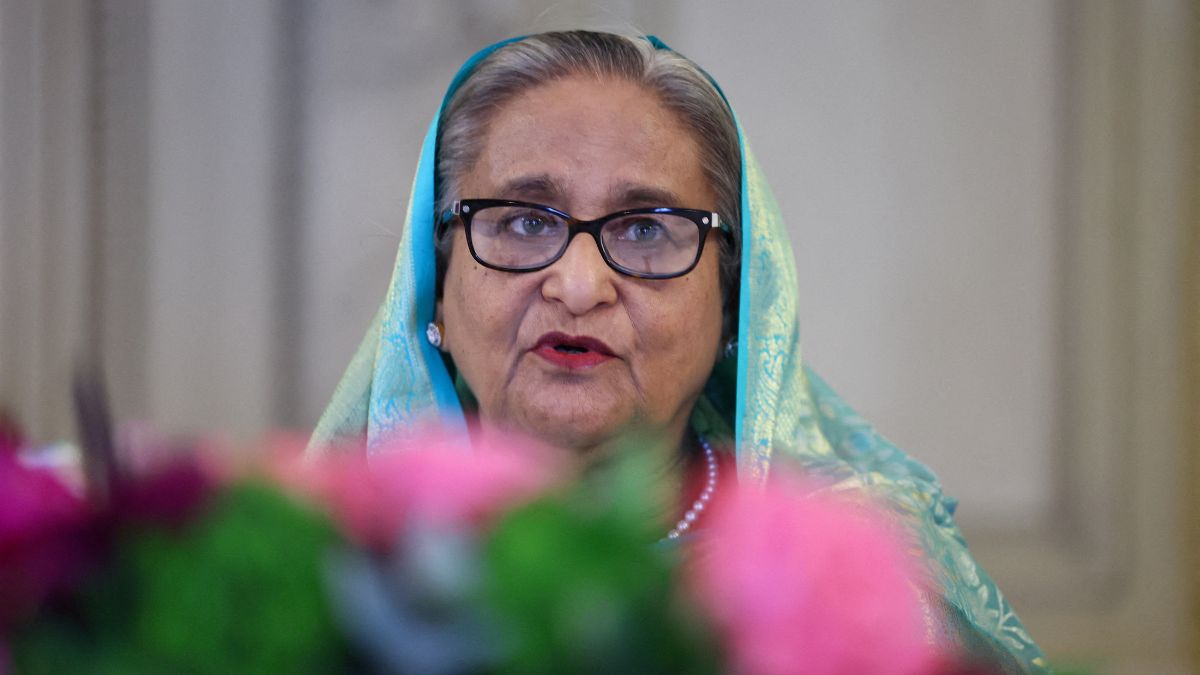Two days after Bangladesh Prime Minister Sheikh Hasina was forced to resign and fled the country amid widespread protests, major changes are taking place in the neighbouring country’s institutions, including the Bangladesh Army, Dhaka Metropolitan Police, and Bangladesh Bank.
“Major General Ziaul Ahsan, the director general of the National Telecommunication Monitoring Centre (NTMC), has been sacked and replaced by Maj Gen ASM Ridwanur Rahman,” the Inter-Services Public Relations (ISPR) directorate said in a statement on Tuesday.
“Lt Gen Saiful Alam has been stationed at the foreign ministry, while Lt Gen Mujibur Rahman has been appointed as GOC at Army Training and Doctrine Command, Lt Gen Ahammad Tabrej Shams Chowdhury as quarter master general, Lt Gen Mizanur Rahman Shamim as chief of general staff and Lt Gen Mohammad Shahinul Haque as commandant of NDC,” the statement added.
Meanwhile, on Wednesday, the authorities also reconstituted the top positions of Rapid Action Battalion (RAB) and Dhaka Metropolitan Police (DMP).
AKM Shahidur Rahman has been appointed as Director General of RAB, replacing additional Inspector General of Police Md. Harun Ar Rashid.
Md. Mainul Hasan will replace Habibur Rahman as the commissioner of Dhaka Metropolitan Police.
The new appointments were announced in the notification of the public security division of the home ministry.
Earlier on Tuesday night, Mainul Islam was appointed as Inspector General of Police (IGP). He was the commandant (additional IGP) of police traffic and driving school.
Impact Shorts
More ShortsAmid these changes, Bangladesh Bank has also been hit by instability as a group of nearly 200 officials and employees staged a demonstration demanding the resignation of the central bank governor, four deputy governors, advisers and the head of the financial intelligence unit (BFIU).
According to Prothom Alo English report, during the demonstration, the protesters entered the governor’s floor in the main building of the central bank and forced all the deputy governors to sign on blank papers.
The report cited the witnesses saying that four deputy governors and the head of the financial intelligence unit have already “resigned” and left the central bank in the face of demands by disgruntled officials.
The soldiers gave them security at that time, added the report.
Governor Abdur Rouf Talukder was not in the office at the time of the incident.
The protesting officials and employees did not carry any party banners. They accused top officials of Bangladesh Bank of being responsible for irregularities and corruption within the banking sector, arguing that good governance cannot be restored while these individuals remain in charge, reported Prothom Alo English.
Witnesses said the protesters initially stormed the office of Deputy Governor Kazi Sayedur Rahman, pressuring him to resign. Rahman complied by writing and signing his resignation on a blank sheet of paper before leaving the bank.
Following this, the disgruntled group forced Deputy Governors Nurun Nahar, Md. Khurshid Alam, and Md. Habibur Rahman to sign the blank resignation paper as well. They also demanded the resignation of bank adviser Abu Farah Md. Nasser and Masud Biswas from the Bangladesh Financial Intelligence Unit.
All these top officials were appointed on a contractual basis. The agitating officials and employees declared them persona non grata within the central bank and appointed Executive Director-1 Zakir Hossain Chowdhury as the officer-in-charge.
76-year-old Hasina’s 15-year rule ended after she resigned as the prime minister following the massive protests that initially began as an agitation against a job quota scheme but weeks later morphed into a mass movement demanding her ouster from power.
The controversial quota system provided for 30 per cent reservations in civil services jobs for the families of veterans who fought the 1971 liberation war.
Hasina’s Awami League retained power in the parliamentary election in January that was boycotted by the opposition parties.
The former Bangladesh prime minister left her official residence Ganabhavan in a military chopper to an airbase. From the airbase, she flew into Hindon in a C-130 military transport aircraft of the Bangladesh Air Force.
Her plan to travel to London has hit a roadblock following the UK’s hesitation to provide her refuge and she is unlikely to move out of India for the next couple of days, according to people familiar with the matter.
With inputs from agencies
)